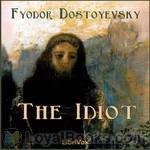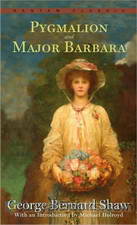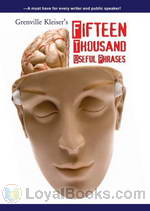|
Books Should Be Free Loyal Books Free Public Domain Audiobooks & eBook Downloads |
|
|
Books Should Be Free Loyal Books Free Public Domain Audiobooks & eBook Downloads |
|
Books on Languages |
|---|
|
Book type:
Sort by:
View by:
|
By: Erwin W. (Erwin William) Roessler (1880-) | |
|---|---|
 A First Spanish Reader
A First Spanish Reader
| |
By: Euripides (480-406 BC) | |
|---|---|
 The Trojan Women
The Trojan Women
Euripides' play follows the fates of the women of Troy after their city has been sacked, their husbands killed, and as their remaining families are about to be taken away as slaves. However, it begins first with the gods Athena and Poseidon discussing ways to punish the Greek armies because they condoned Ajax the Lesser for dragging Cassandra away from Athena's temple. What follows shows how much the Trojan women have suffered as their grief is compounded when the Greeks dole out additional deaths and divide their shares of women. | |
 Medea
Medea
Euripides' tragedy focuses on the disintegration of the relationship between Jason, the hero who captured the Golden Fleece, and Medea, the sorceress who returned with him to Corinth and had two sons with him. As the play opens, Jason plans to marry the daughter of King Creon, and the lovesick Medea plots how to take her revenge. | |
By: Eva March Tappan (1854-1930) | |
|---|---|
 Makers of Many Things
Makers of Many Things
How are friction matches made? How do rags and trees become paper? Who makes the dishes on our tables? Published in 1916, this children's book explains the origins of everyday items in an entertaining and informative way. There are plenty of illustrations, so please feel free to read along. | |
By: F. F. Arbuthnot (1833-1901) | |
|---|---|
 Arabic Authors A Manual of Arabian History and Literature
Arabic Authors A Manual of Arabian History and Literature
| |
By: F. Max Müller (1823-1900) | |
|---|---|
 My Autobiography A Fragment
My Autobiography A Fragment
| |
By: Frances Ellen Lord (1835-) | |
|---|---|
 The Roman Pronunciation of Latin Why we use it and how to use it
The Roman Pronunciation of Latin Why we use it and how to use it
| |
By: Frances Jermain | |
|---|---|
 In the Path of the Alphabet
In the Path of the Alphabet
Language: we all use it and few of us think about the form it takes on the page. But how did the transmittal of ideas in written form evolve from Egyptian hieroglyphics to the ABCs in use in most countries around the world today? This work, written by a librarian and scholar, draws on previously published works and also direct correspondence with archaeologists still uncovering secrets in Egypt and Mesopotamia. Her death left this work unfinished, but others were able to polish it for publication. - Summary by Lynne Thompson | |
By: Francis Grose (1731-1791) | |
|---|---|
 1811 Dictionary of the Vulgar Tongue
1811 Dictionary of the Vulgar Tongue
| |
By: Francis Lister Hawks Pott (1864-1947) | |
|---|---|
 Lessons in the Shanghai Dialect
Lessons in the Shanghai Dialect
A rare textbook on Shanghai dialect by Reverend F. L. H. Pott, an American missionary and educator who lived in China for more than 50 years. - Summary by Xiaoyan Arrowsmith | |
By: Francis Ritchie | |
|---|---|
 Ritchie's Fabulae Faciles A First Latin Reader
Ritchie's Fabulae Faciles A First Latin Reader
| |
By: Francisco Hernández Arana Xajilá (1502?-1581) | |
|---|---|
 The Annals of the Cakchiquels
The Annals of the Cakchiquels
| |
By: Frederic Kidder (1804-1885) | |
|---|---|
 The Abenaki Indians Their Treaties of 1713 & 1717, and a Vocabulary
The Abenaki Indians Their Treaties of 1713 & 1717, and a Vocabulary
| |
By: Frederic W. Moorman (1872-1919) | |
|---|---|
 Yorkshire Dialect Poems (1673-1915) and traditional poems
Yorkshire Dialect Poems (1673-1915) and traditional poems
| |
 Songs of the Ridings
Songs of the Ridings
| |
By: Fyodor Dostoyevsky (1821-1881) | |
|---|---|
 Crime and Punishment
Crime and Punishment
A mysterious crime is being plotted in a tiny garret above a dilapidated apartment building in St Petersburg in Russia. The plotter, Rodion Raskolinikov, is a poor student who has delusions of ridding the world of “worthless vermin” and counter balancing these crimes with good deeds. He commits a murder to test his own theories and prove that crime comes naturally to the human species. Crime and Punishment is a path-breaking novel of ideas that changed the course of novel writing in the 20th century... | |
 The Brothers Karamazov
The Brothers Karamazov
Set in 19th century Russia, The Brothers Karamazov (Russian: Братья Карамазовы) is the last novel written by the illustrious author Fyodor Dostoyevsky who died a few months before the book's publication. The deeply philosophical and passionate novel tells the story of Fyodor Karamazov, an immoral debauch whose sole aim in life is the acquisition of wealth. Twice married, he has three sons whose welfare and upbringing, he cares nothing about. At the beginning of the story, Dimitri Karamazov, the eldest son who is now a twenty-eight year old war veteran, returns to his home town to claim the inheritance left to him by his dead mother... | |
 The Idiot
The Idiot
The extraordinary child-adult Prince Myshkin, confined for several years in a Swiss sanatorium suffering from severe epilepsy, returns to Russia to claim his inheritance and to find a place in healthy human society.The teeming St Petersburg community he enters is far from receptive to an innocent like himself, despite some early successes and relentless pursuit by grotesque fortune-hunters. His naive gaucheries give rise to extreme reactions among his new acquaintance, ranging from anguished protectiveness to mockery and contempt... | |
 The Gambler
The Gambler
The Gambler is a short novel by Fyodor Dostoevsky about a young tutor in the employment of a formerly wealthy Russian general. The novella reflects Dostoevsky's own addiction to roulette, which was in more ways than one the inspiration for the book: Dostoevsky completed the novella under a strict deadline so he could pay off gambling debts. | |
 Possessed
Possessed
| |
 The Grand Inquisitor
The Grand Inquisitor
| |
By: Fyodor Sologub (1863-1927) | |
|---|---|
 The Created Legend
The Created Legend
| |
By: G. W. | |
|---|---|
 Magazine, or Animadversions on the English Spelling (1703)
Magazine, or Animadversions on the English Spelling (1703)
| |
By: Gaius Petronius Arbiter | |
|---|---|
 The Satyricon
The Satyricon
Satyricon (or Satyrica) is a Latin work of fiction in a mixture of prose and poetry. It is believed to have been written by Gaius Petronius, though the manuscript tradition identifies the author as a certain Titus Petronius. As with the Metamorphoses of Apuleius, classical scholars often describe it as a "Roman novel", without necessarily implying continuity with the modern literary form.The surviving portions of the text detail the misadventures of the narrator, Encolpius, and his lover, a handsome sixteen-year-old boy named Giton... | |
By: Gaius Valerius Catullus (84 BC - 54 BC) | |
|---|---|
 The Poems and Fragments of Catullus Translated in the Metres of the Original
The Poems and Fragments of Catullus Translated in the Metres of the Original
| |
By: Garland Greever (1883-1967) | |
|---|---|
 The Century Handbook of Writing
The Century Handbook of Writing
| |
By: Garrick Mallery (1831-1894) | |
|---|---|
 Sign Language Among North American Indians Compared With That Among Other Peoples
Sign Language Among North American Indians Compared With That Among Other Peoples
| |
By: George Bernard Shaw (1856-1950) | |
|---|---|
 Pygmalion
Pygmalion
If you've watched and loved the delightful musical My Fair Lady, then you'd love to read the wonderful play on which it is based. Pygmalion by George Bernard Shaw is equally engrossing and as full of charm, wit and underlying pathos. First performed on stage in 1912, Pygmalion takes its title from the Greek myth of Pygmalion and Galatea. In the ancient story, a brilliant sculptor, Pygmalion falls in love with one of his own creations, a ravishingly beautiful sculpture whom he names Galatea. He propitiates Aphrodite, who grants his wish that his statue would come to life and that he could marry her... | |
By: George F. Dillon (1836-1893) | |
|---|---|
 Song Celestial; Or, Bhagavad-Gîtâ
Song Celestial; Or, Bhagavad-Gîtâ
| |
By: George Gibbs (1815-1873) | |
|---|---|
 Dictionary of the Chinook Jargon, or, Trade Language of Oregon
Dictionary of the Chinook Jargon, or, Trade Language of Oregon
| |
 Alphabetical Vocabularies of the Clallum and Lummi
Alphabetical Vocabularies of the Clallum and Lummi
| |
By: George Henry Borrow (1803-1881) | |
|---|---|
 Romano Lavo-Lil: word book of the Romany; or, English Gypsy language
Romano Lavo-Lil: word book of the Romany; or, English Gypsy language
| |
 The Zincali: an account of the gypsies of Spain
The Zincali: an account of the gypsies of Spain
| |
By: George Lillie Craik (1798-1866) | |
|---|---|
 Compendious History of English Literature and of the English Language, Volume I
Compendious History of English Literature and of the English Language, Volume I
The History of English Literature and Language may be recommended to the student as a guide always sure, and as satisfactory as its limits will admit, to the gathered harvest of a thousand years -- from ALFRED the Great to VICTORIA -- now existing in a language radically identical for the whole of that period, the common property of all who are born to its use, a personal endowment not to be limited by local accidents, but the rightful possession of those who "claim SHAKESPEARE's language for their mother tongue... | |
By: George Lovell Cary | |
|---|---|
 An Introduction to the Greek of the New Testament
An Introduction to the Greek of the New Testament
A collection of lessons (primarily in grammar) for New Testament Greek (also known as Koine) collected by a professor at Meadville Theological School of Pennsylvania. There are over 80 short lessons, each covering an aspect of verbs, nouns, etc. | |
By: George Middleton (1865-) | |
|---|---|
 The Student's Companion to Latin Authors
The Student's Companion to Latin Authors
| |
By: Gerard Nolst Trenité | |
|---|---|
 The Chaos
The Chaos
“The Chaos” is a poem which demonstrates the irregularity of English spelling and pronunciation, written by Gerard Nolst Trenité (1870-1946), also known under the pseudonym Charivarius. It first appeared in an appendix to the author’s 1920 textbook Drop Your Foreign Accent: engelsche uitspraakoefeningen. | |
By: Gilbert Sykes Blakely | |
|---|---|
 Teachers' Outlines for Studies in English Based on the Requirements for Admission to College
Teachers' Outlines for Studies in English Based on the Requirements for Admission to College
| |
By: Giles Du Wés (-1535) | |
|---|---|
 An Introductorie for to Lerne to Read, To Pronounce, and to Speke French Trewly
An Introductorie for to Lerne to Read, To Pronounce, and to Speke French Trewly
| |
By: Goold Brown (1791-1857) | |
|---|---|
 The Grammar of English Grammars
The Grammar of English Grammars
| |
By: Grant Showerman (1870-1935) | |
|---|---|
 Horace and His Influence
Horace and His Influence
| |
By: Grenville Kleiser (1868-1953) | |
|---|---|
 Fifteen Thousand Useful Phrases
Fifteen Thousand Useful Phrases
Fifteen Thousand Useful Phrases is a practical handbook written by Grenville Kleiser. Grenville is known for his writings on humor, positive thinking and inspirational thought. This serves as a handbook of pertinent expressions, striking similes and terms for embellishing speech and literature. This book can be used to improve vocabulary for reading, writing and speaking alike. Through mastery of words, the most powerful and perfect expression of thought can be delivered orally. Choosing the correct words conveys ideas in a crisp and clear way that will hold and audience's attention... | |
By: H. Bolingbroke Mudie (1880-1916) | |
|---|---|
 The Esperantist, Vol. 1, No. 1
The Esperantist, Vol. 1, No. 1
| |
 The Esperantist, Vol. 1, No. 3
The Esperantist, Vol. 1, No. 3
| |
 The Esperantist, Vol. 1, No. 2
The Esperantist, Vol. 1, No. 2
| |
By: H. L. Mencken (1880-1956) | |
|---|---|
 American Language
American Language
"It was part of my daily work, for a good many years, to read the principal English newspapers and reviews; it has been part of my work, all the time, to read the more important English novels, essays, poetry and criticism. An American born and bred, I early noted, as everyone else in like case must note, certain salient differences between the English of England and the English of America as practically spoken and written—differences in vocabulary, in syntax, in the shades and habits of idiom, and even, coming to the common speech, in grammar... | |
By: Hans Ostwald (1873-1940) | |
|---|---|
 Maxim Gorki
Maxim Gorki
| |
By: Harry Thurston Peck (1856-1914) | |
|---|---|
 Latin Pronunciation A Short Exposition of the Roman Method
Latin Pronunciation A Short Exposition of the Roman Method
| |
By: Harry Vincent Wann | |
|---|---|
 French Conversation and Composition
French Conversation and Composition
| |
By: Helen Fryer | |
|---|---|
 The Esperanto Teacher
The Esperanto Teacher
The international language Esperanto was first released to the world in 1887, when L. L. Zamenhof published his first book, “Dr. Esperanto’s International Language”. Since that time, many learning books have been developed to help the beginner attain a proficiency in the language. Helen Fryer’s “Esperanto Teacher” is one of the earliest of these attempts in English. Divided into 45 short and easy lessons and supplemented with sections on joining words, exclamations, compound words, arrangement... | |
By: Hélène A. Guerber (1859-1929) | |
|---|---|
 Contes et légendes 1re Partie
Contes et légendes 1re Partie
| |
By: Henry Bate | |
|---|---|
 A Short System of English Grammar For the Use of the Boarding School in Worcester (1759)
A Short System of English Grammar For the Use of the Boarding School in Worcester (1759)
| |
By: Henry Hart Milman (1791-1868) | |
|---|---|
 Nala and Damayanti and Other Poems
Nala and Damayanti and Other Poems
| |
By: Henry Hobart Vail (1839-1925) | |
|---|---|
 A History of the McGuffey Readers
A History of the McGuffey Readers
| |
By: Henry Jenner (1848-1934) | |
|---|---|
 A Handbook of the Cornish Language chiefly in its latest stages with some account of its history and literature
A Handbook of the Cornish Language chiefly in its latest stages with some account of its history and literature
| |
By: Henry Sweet (1845-1912) | |
|---|---|
 Icelandic Primer with Grammar, Notes and Glossary
Icelandic Primer with Grammar, Notes and Glossary
| |